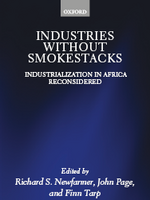Filter by...
Reset all
Publications (119)
Working Paper
pdf
– A comparative perspective
We examine the distributional effects of the COVID-19 pandemic and associated tax-benefit measures in seven sub-Saharan African countries, focusing on the onset of the crisis.We evaluate impacts on disposable incomes, considering variations across income groups; assess the effectiveness of tax...
Working Paper
pdf
This study evaluates which type of benefit—a universal benefit, a proxy mean-tested benefit, or a categorical benefit— better cushions the poverty effects of income shocks in a developing economy. We compare the effectiveness of the three benefit schemes on poverty first conceptually and then by...

Many displaced people around the world are in limbo—unable to return home or go anywhere else. Our surveys show that displaced people have lived in their current location for 6.9 years on average, significantly longer than the five-year threshold for what is typically considered a ‘protracted’...
Report
pdf
This report documents ETMOD, the SOUTHMOD model developed for Ethiopia. The Ethiopian national team currently includes Adnan A. Shahir, Abas Mohammed Ali, and Francesco Figari, who are responsible for the 2022 model update and this report. The results presented here are derived using ETMOD version 3...
Working Paper
pdf
– Insights from the Ethiopian and Somali civil wars
What distinguishes post-war governments that succeed in establishing a stable political order and prevent recurring conflict from those that do not? This comparative study considers the specific threats that typically lead to the collapse of the post-conflict political order to offer new hypotheses...
Working Paper
pdf
– Evidence from a survey experiment in urban Ethiopia
The paucity of reliable, timely household consumption data in many low- and middle-income countries has made it difficult to assess how global poverty has evolved during the COVID-19 pandemic. Standard poverty measurement requires collecting household consumption data, which is rarely done by phone...
Report
pdf
View the latest ETMOD country report here. This report documents ETMOD, the SOUTHMOD model developed for Ethiopia. Since 2020 the Ethiopian national team is based at the University of Insubria (Italy). It includes Adnan A. Shahir and Francesco Figari, responsible for the 2022 update of the model and...
Technical Note
pdf
Agricultural subsidies may have significant productive and distributional consequences, and policy-makers need to be able to assess these impacts as a part of the overall tax and benefit policy. Microsimulation models offer a tool for such analysis also in developing countries, but their coverage...
Working Paper
pdf
– A case study of the Eastern Industry Park
Despite the Ethiopian government’s commitment to attracting foreign direct investment to its emerging manufacturing sector and its shared interests with Chinese private businesses in building profitable investments, relations between Chinese private businesses and the Ethiopian government are not...
Working Paper
pdf
– A gendered life-course perspective
We investigate the causes of the gender disparity in labour market participation in Ethiopia using iterative quantitative and qualitative longitudinal analysis through the whole childhood of the individual into early adulthood, from age 8 up to age 25. Multilevel survival analysis shows that girls...
Working Paper
pdf
This paper analyses the impact of trade liberalization on local labour markets in Ethiopia, with a focus on the gender dimension of employment. By exploiting rich micro-level data on Ethiopian workers, we evaluate the effect of the Ethiopian trade reforms on the changes and composition of employment...
Working Paper
pdf
Manufacturing industry expansion is a central part of Ethiopia’s growth and transformation agenda due to its potential for accelerated economic development and large-scale job creation, in particular for women. However, the industry is experiencing extremely high labour turnover rates, which is...
Working Paper
pdf
We look at how improving roads can affect jobs and structural transformation. We use a novel geocoded dataset covering the universe of Ethiopian roads and match this information with individual data to identify the effects of improvements in road infrastructure on the creation, quality, and sectoral...

From the book:
Industries without Smokestacks
Working Paper
pdf
– A micro perspective from Tigray, Ethiopia
While the volume of remittances to developing countries has been growing significantly over the years, the impact of remittances on food security has not received much attention. To bridge the gap this paper has examined the impact of remittances on farm household’s food security status, using a...
Displaying 16 of 119 results
 Join the network
Join the network